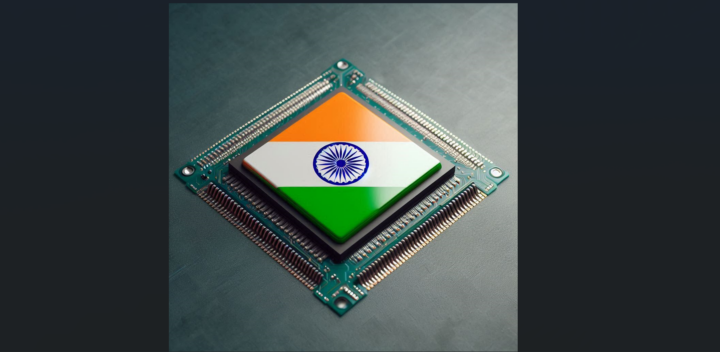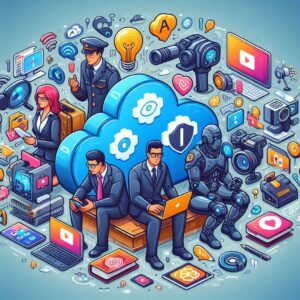The revolution in technology has only accelerated during the last two years of the pandemic. If at all any good was to be attributed to the pandemic, it is the kind of large-scale technology/digital adoption the world has witnessed.
Sections of the society that were averse to even data entry and any use of digital media have now become tech-savvy and big-time users. This is particularly true across industries and even in government jobs. Online retail has flourished, media and telecom have been big gainers, and technology adoption in EdTech and FinTech has become more prevalent.
Read more: Why conversational AI is the future for HR processes
Amidst all this, in August 2021, Mark Zuckerberg announced that Facebook will be renamed Meta. In addition, Microsoft and other major companies also jumped into the bandwagon with huge claims on the accelerated adoption of the Metaverse. Many aver that this will be the next radical technology disruption and will revolutionize the way people conceive its relevance.
I expect this will come true as well. And then the conversation also shifts to Web 3, blockchain, and NFT related to metaverse as well.
Let’s first understand the basics of these concepts and see how they can potentially revolutionize the staffing industry.
- Metaverse – it is all about living in a virtual digital universe. Technologies like Virtual reality, Augmented reality, computer vision, and Artificial Intelligence auger
- Web 3 – it is the next-gen evolution of the Internet, where it is more democratized and the data is not owned by platform companies (like Facebook, Twitter, ) unlike today. It is also referred to sometimes as immersive Web.
- Non-Fungible Tokens – It is a digital unit that can be sold and traded – it cannot be tampered with and can be conceived as the digital unit to buy/sell anything on Web
- It is usually stored in a blockchain. NFTs can be photos, audio, or even videos. In the staffing world, this can be even the resumes of job aspirants. NFTs are different from crypto currencies, which are usually fungible.
How do the above three come together?
Imagine you have resumes on Web 3 which are NFTs and owned by the candidates. They are sold by a digital staffing leader to a digital client who has open demands for the same set of skills: all on Web 3. And all the nine yards of recruitment from the sharing of resumes to onboarding is on the digital universe.
For example, interviews happen on the metaverse where the interviewer and candidate come together in the digital world with their digital twins, using AR/VR headsets. Finally, the financial transactions across the digital staffing companies and the customers happen through the exchange of crypto currencies.
Imagine you have resumes on Web 3 which are NFTs and owned by the candidates
Welcome to the world of the metaverse. Let us now explore how life in the metaverse may look specific to the staffing industry.
The resumes are the property of the candidates, and the good thing is they can be on blockchain to ensure they cannot be tampered with. However, all the digital staffing agencies will be able to read and sell the same to ensure the right placements.
AI-powered search engines can source resumes from various sources based on the job requirements. This is in vogue even today. But I expect that this will become even more prevalent and automated across various sourcing channels.
Initial screening of resumes can be automated, largely – even today AI-powered technologies do the same. Also, for the initial screening discussion to check the availability of the candidate, etc. I expect it will happen using AI-powered virtual assistants and digital twins.
Will a time come when there are no physical spaces, and all office real estate is in the metaverse?
Will there be a time when there is no face-to-face interview?
Interviews will be largely automated in my opinion for basic evaluations – AI-powered virtual assistants will conduct the interviews, and assess if the candidate is faking by observing the body language, eyeball movements, lip-sync, etc.
Human-to-human interaction will also be primarily driven through digital twins. This will give
almost a feeling of being in person and people will experience the interview across the table – all in a digital world using AR/VR technologies. This of course is a big advantage as it eliminates the need to travel and at the same time allows the interviewer to observe the body language and other softer aspects – all from the comfort of his/her seat wherever.
Imagine that you can shake hands with the candidate using your digital twins. Also, salary negotiations and explanations of the benefits can all be done much closer to reality as if you are sitting right across the table. The body language of the digital twin will mirror the emotions of the actual person and this will help assess the other party.
Finally, onboarding can also be completed in the metaverse where digital ids are created as NFTs. Imagine, welcome kits can be given virtually, and induction sessions can be done using digital twins.
In today’s world, if this is even over a video call, you are not sure if the person is paying attention to the sessions. The metaverse can make it easier (though not completely foolproof) as you are interacting with the digital twin in an immersive experience.
Read more: {Zoom In: HR Tech} Adopting Tech in a Fast Changing Corporate World
Will a time come when there are no physical spaces, and all office real estate is in the metaverse?
Will there be a time when there is no face-to-face interview?
My take is that while technology can enable the same, the basic human need to interact and live with other humans will take precedence as we are social animals. If you see the world around us today, the traffic jams are getting worse than pre-2020 levels even when remote/hybrid work is allowed. Wait for the future to unfold.

Guest contributor A R Ramesh is the Director of Managed Services & Professional Staffing at Adecco India. Any opinions expressed in this article are strictly that of the author.












